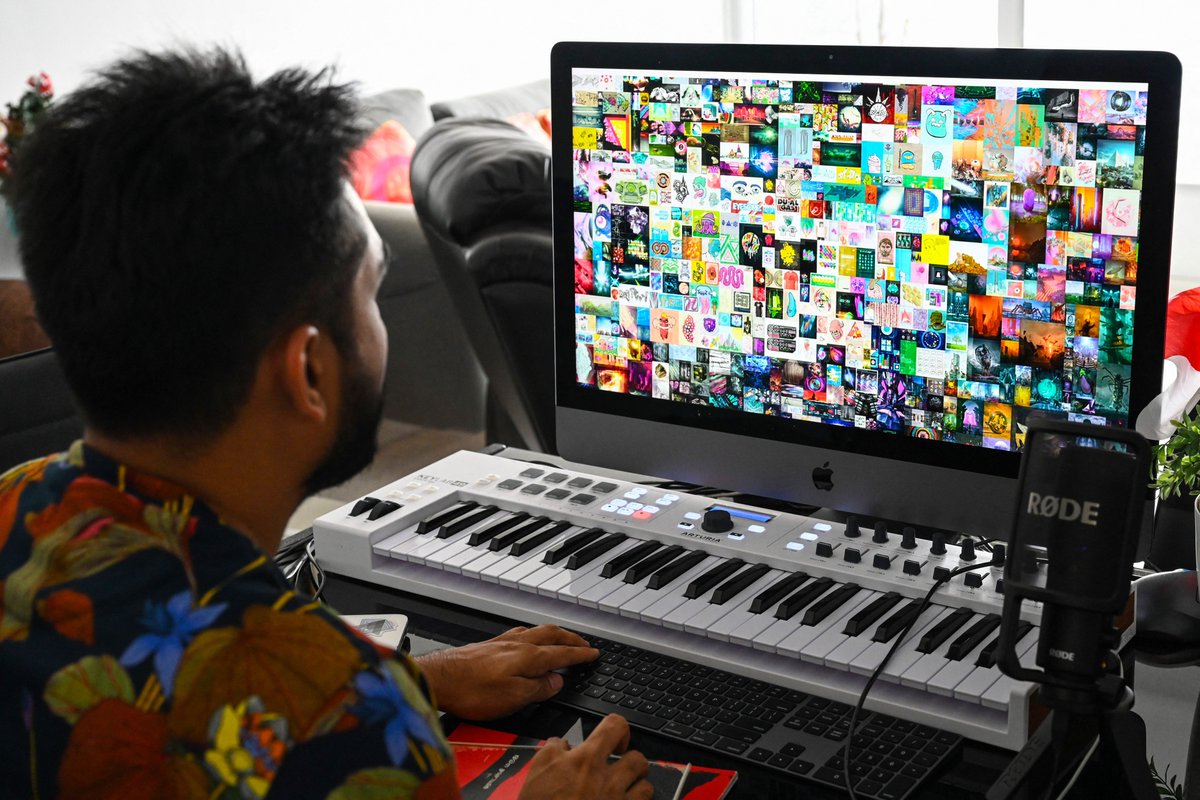
If the price of Bitcoin were to reach $200,000, half of the world’s billionaires would be crypto billionaires.
This crypto wealth has vast potential to reshape philanthropy trib.al/mTXkYLW
This crypto wealth has vast potential to reshape philanthropy trib.al/mTXkYLW
Bitcoin itself is a weird, stand-alone project.
In part because of this, we should expect a relative decline in the influence of longstanding nonprofit institutions — and more weird, stand-alone projects trib.al/mTXkYLW
In part because of this, we should expect a relative decline in the influence of longstanding nonprofit institutions — and more weird, stand-alone projects trib.al/mTXkYLW

The Bitcoin ecosystem has been self-sustaining since the beginning, and so it should hardly come as a surprise that Bitcoin billionaires take Bitcoin itself as a model for future institutions, including in philanthropy trib.al/mTXkYLW 

As philanthropists, crypto billionaires will likely look to support ideas that can launch in a dramatic way and quickly acquire escape velocity.
They are unlikely to fund the ongoing labor costs of established cultural institutions trib.al/mTXkYLW
They are unlikely to fund the ongoing labor costs of established cultural institutions trib.al/mTXkYLW

Bitcoin and many other cryptocurrencies seem designed to stand independent of any government or mainstream financial institution.
That suggests that the philanthropic emphasis of crypto wealth will be on non-establishment, non-governmental organizations trib.al/mTXkYLW
That suggests that the philanthropic emphasis of crypto wealth will be on non-establishment, non-governmental organizations trib.al/mTXkYLW

Compare this to the philanthropic approach of an earlier America.
The Cleveland Symphony Orchestra, for instance, received significant support from Midwestern businesses and businessmen, especially from people connected to Cleveland trib.al/mTXkYLW
The Cleveland Symphony Orchestra, for instance, received significant support from Midwestern businesses and businessmen, especially from people connected to Cleveland trib.al/mTXkYLW

It was one of the best orchestras in the world for decades (and is still very good), even though Cleveland was never a first-tier American city.
The mid-20th century philanthropic system worked very well for sustaining this kind of institution trib.al/mTXkYLW
The mid-20th century philanthropic system worked very well for sustaining this kind of institution trib.al/mTXkYLW

Many of the very wealthy individuals from crypto are quite young. That probably rules out a lot of philanthropic support for:
🖼️Art museums
🎤Opera houses
🎉High-culture festivals
Those venues typically command loyalty from older customers and donors
trib.al/mTXkYLW
🖼️Art museums
🎤Opera houses
🎉High-culture festivals
Those venues typically command loyalty from older customers and donors
trib.al/mTXkYLW

Yes, two very wealthy people did patronize the arts when they bid $60 million-plus for the NFT of a Beeple artwork.
But that bid can be seen as an effort to jump-start a new genre of art trib.al/mTXkYLW
But that bid can be seen as an effort to jump-start a new genre of art trib.al/mTXkYLW

Nonprofits will have to respond to these new donors by looking for ways to achieve their ends with lower labor costs and more innovative ideas.
Not all current nonprofits are up to this challenge trib.al/mTXkYLW
Not all current nonprofits are up to this challenge trib.al/mTXkYLW

Venture capitalist Paul Graham has pointed out that wealth is earned much more quickly nowadays. Crypto, after all, is only 12 years old.
Bitcoin billionaires haven't necessarily had to work their way up, finally achieving a top position in their 60s trib.al/mTXkYLW
Bitcoin billionaires haven't necessarily had to work their way up, finally achieving a top position in their 60s trib.al/mTXkYLW

They either are founders of rapidly growing and scaling companies, or they bought large sums of the right crypto assets early on, or both.
Either way, their temperaments are geared to expect immediate action and rapid results trib.al/mTXkYLW
Either way, their temperaments are geared to expect immediate action and rapid results trib.al/mTXkYLW

Nonprofits will have to adjust accordingly, even though speed is not typically their comparative advantage.
That in turn suggests that the organizational structures of many nonprofits will have to change fairly radically trib.al/mTXkYLW
That in turn suggests that the organizational structures of many nonprofits will have to change fairly radically trib.al/mTXkYLW

Some of these billionaires might end up feeling politically vulnerable.
Crypto titans don’t have obvious political power bases the way the mainstream financial sector tends to have very good relations with New York state senators trib.al/mTXkYLW
Crypto titans don’t have obvious political power bases the way the mainstream financial sector tends to have very good relations with New York state senators trib.al/mTXkYLW

That suggests an interest in directly humanitarian philanthropy.
So if you have a new and radical idea for how to help the poor, there has never been a better time to be a nonprofit entrepreneur trib.al/mTXkYLW
So if you have a new and radical idea for how to help the poor, there has never been a better time to be a nonprofit entrepreneur trib.al/mTXkYLW

• • •
Missing some Tweet in this thread? You can try to
force a refresh













